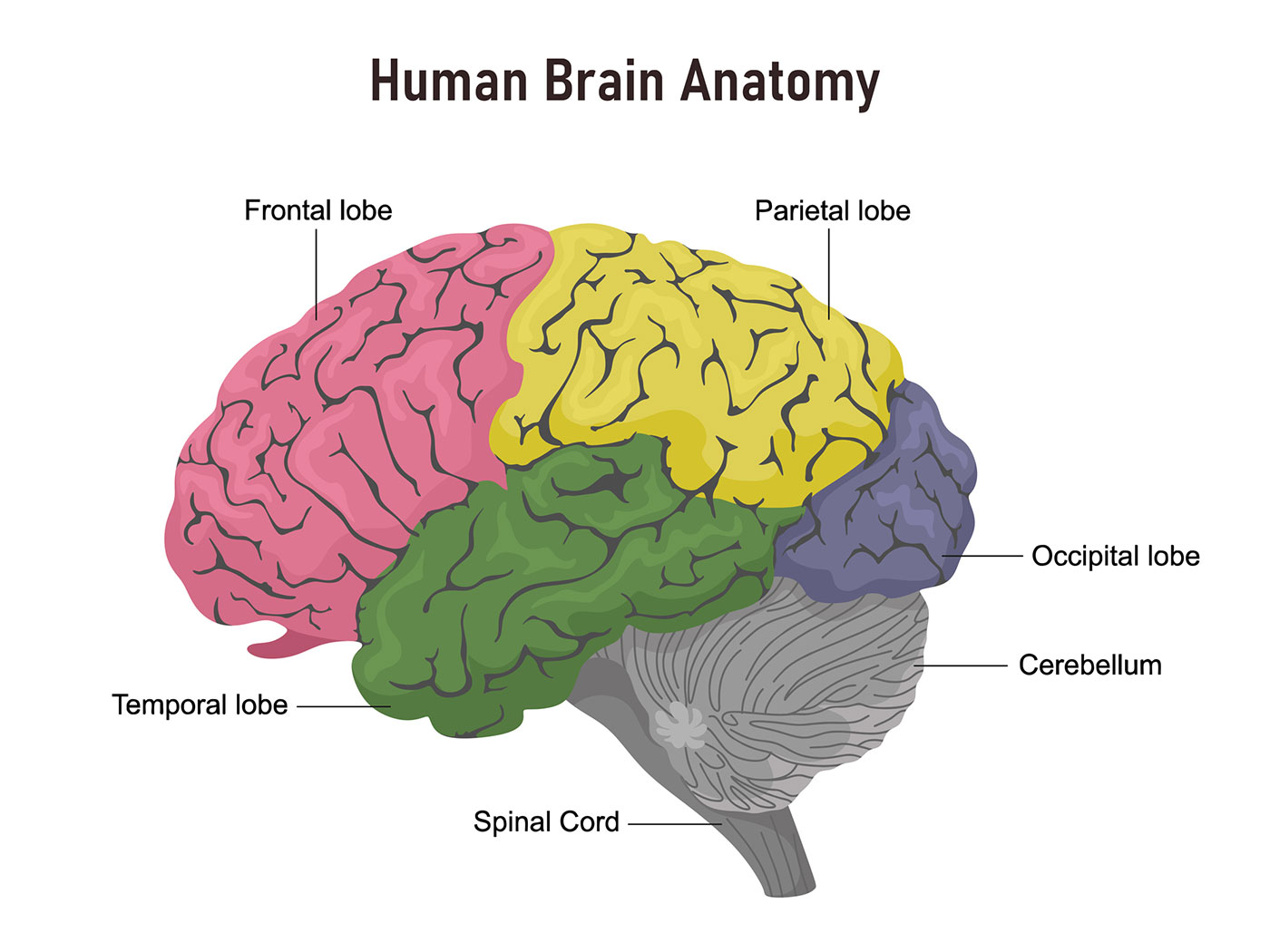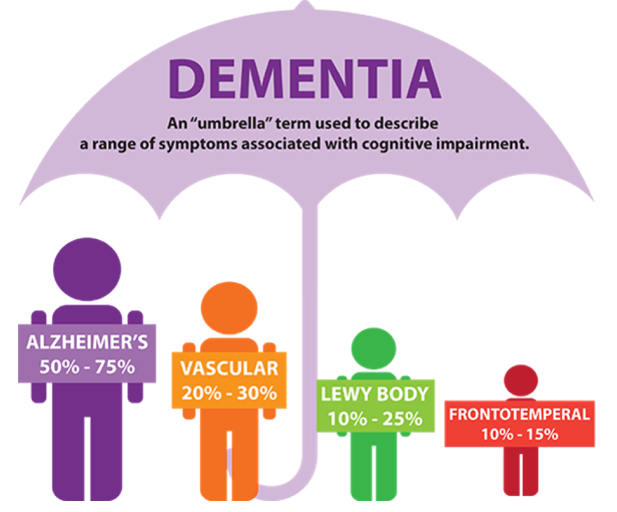Common types of dementia
Dementia UK tells us "there are many different types and subtypes of dementia". Each type stops a person's brain cells (neurones) working properly in specific areas, affecting their ability to remember, think and speak. It is also worth remembering that people with an intellectual disability, particularly people with Down/Down's syndrome, are at increased risk of developing different types of dementia as they age. However, the main types of dementia are covered below:
Alzheimer’s disease is the most common and well-known cause of dementia. It is thought to cause over half of all cases of dementia. At first, Alzheimer's disease typically destroys neurons and their connections in parts of the brain involved in memory, including the entorhinal cortex and hippocampus. It later affects areas in the cerebral cortex responsible for language, reasoning, and social behaviour.

Image source: What Happens to the Brain in Alzheimer's Disease? | National Institute on Aging
Vascular dementia is the second most common type of dementia. It is caused by reduced blood flow to the brain, which damages and eventually kills brain cells. This can happen as a result of:
- narrowing and blockage of the small blood vessels inside the brain
- a single stroke, where the blood supply to part of the brain is suddenly cut off
- lots of "mini strokes" also called transient ischaemic attacks or (TIA's) and they cause tiny but widespread damage to the brain
In many cases, these problems are linked to underlying conditions, such as diabetes, high blood pressure and lifestyle factors e.g. smoking and being overweight.
Dementia with Lewy bodies is a type of dementia that shares characteristics with both Alzheimer’s disease and Parkinson’s disease. The precise cause of Lewy Body Dementia (LBD) is unknown, but scientists are learning more about its biology and genetics. For example, we know that an accumulation of Lewy bodies (abnormal clumps of protein) is associated with a loss of certain neurons in the brain that produce two important chemicals that act as messengers between brain cells (called neurotransmitters). One of these messengers, acetylcholine, is important for memory and learning. The other, dopamine, plays an important role in behaviour, cognition, movement, motivation, sleep, and mood.
Frontotemporal dementia Frontotemporal dementia (FTD) sometimes referred to as Pick's disease is a common cause of dementia. It is a terminology for a group of disorders that occur when nerve cells in the frontal and temporal lobes of the brain are lost. This causes the lobes to shrink. FTD can affect behaviour, personality, language, and movement. The cause of FTD is unknown. Researchers have linked certain subtypes of FTD to mutations on several genes. Some people with FTD have tiny structures, called Pick bodies, in their brain cells. Pick bodies contain an abnormal amount or type of protein.

Image source: Brain Anatomy and How the Brain Works | Johns Hopkins Medicine

